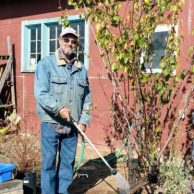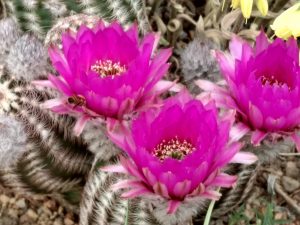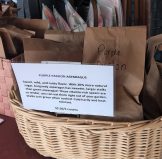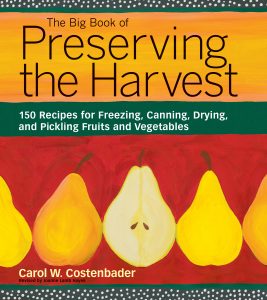 Time to store this year’s bounty! The Big Book of Preserving the Harvest is a dependable classic source of instructions and recipes for drying, pickling, canning, and freezing the fruits of your labors. And after the garden has been put to bed for the winter, there will be time for reading! The most useful, practical, and enlightening books on gardening, nature and natural healing are on our shelves now, with more of the following titles arriving any day now! Don’t forget that one of the benefits of being a Harlequin’s Gardens Member is a 25% discount on all books, all season long! [Read More]
Time to store this year’s bounty! The Big Book of Preserving the Harvest is a dependable classic source of instructions and recipes for drying, pickling, canning, and freezing the fruits of your labors. And after the garden has been put to bed for the winter, there will be time for reading! The most useful, practical, and enlightening books on gardening, nature and natural healing are on our shelves now, with more of the following titles arriving any day now! Don’t forget that one of the benefits of being a Harlequin’s Gardens Member is a 25% discount on all books, all season long! [Read More]
Blog
The SEED Situation
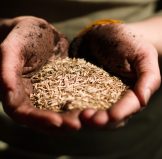 “The less biodiverse any system is, the greater the potential for its collapse.” Janisse Ray, from The Seed Underground: A Growing Revolution to Save Food.
“The less biodiverse any system is, the greater the potential for its collapse.” Janisse Ray, from The Seed Underground: A Growing Revolution to Save Food.
We’ve been reading headlines stating that 93% of seed varieties available in the early 20th century had disappeared from commerce by 1980. The biggest factor in this drastic decline in diversity is consolidation of the industry. The big multi-national corporations have systematically bought up smaller companies and in so doing have ended production of vast numbers of time-tested open-pollinated and older hybrid varieties and prioritized the production of new patented proprietary hybrids. [Read More]
All about Basil
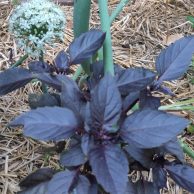 Basil is one of the great culinary pleasures of summer, and it’s definitely NOT TOO LATE to plant Basil and enjoy a good crop! Basil plants are beautiful, grow equally well in the ground or in pots, thrive in hot weather, provide a continuous, bounteous crop, and Basil’s many different flavors are essential to a variety of distinctive cuisines. It can be used fresh, dried, or frozen in oil or as pesto. Though basil leaves lose most of the aromatic oils when dried, we have still found that basil dried from your garden is so much more flavorful than commercial dried basil.
Basil is one of the great culinary pleasures of summer, and it’s definitely NOT TOO LATE to plant Basil and enjoy a good crop! Basil plants are beautiful, grow equally well in the ground or in pots, thrive in hot weather, provide a continuous, bounteous crop, and Basil’s many different flavors are essential to a variety of distinctive cuisines. It can be used fresh, dried, or frozen in oil or as pesto. Though basil leaves lose most of the aromatic oils when dried, we have still found that basil dried from your garden is so much more flavorful than commercial dried basil.
ALL of our Basil plants are organically grown! [Read More]
Pollinator Pathways: Rewilding Boulder Landscapes
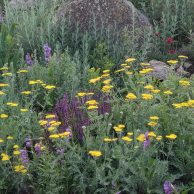 We’re excited that the City of Boulder is gathering feedback from the community about how we use our yards, preferences for landscaping and interest in a citywide effort to create pollinator habitat patches and pathways. Pollinator pathways connect safe, pesticide-free native plant patches of habitat for bees, birds, butterflies, and other wildlife to provide food and nesting sites. Native pollinators are vital to our ecosystems and pathways support pollinator populations, as well as safe passage for movement across the city.
We’re excited that the City of Boulder is gathering feedback from the community about how we use our yards, preferences for landscaping and interest in a citywide effort to create pollinator habitat patches and pathways. Pollinator pathways connect safe, pesticide-free native plant patches of habitat for bees, birds, butterflies, and other wildlife to provide food and nesting sites. Native pollinators are vital to our ecosystems and pathways support pollinator populations, as well as safe passage for movement across the city.
Take Time to Review Your 2021 Garden
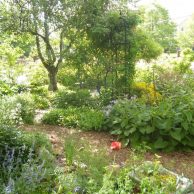 ‘Tis the season of mailboxes stuffed with seed and nursery catalogs, and we know all too well the temptations therein! Our gardens may be dormant, but our plant lust is not, and haven’t we all been sucked in by glossy photos of sexy new must-have plants, even though we haven’t a clue where we’ll put them? We recommend that you try to resist, at least long enough to evaluate your existing garden.
‘Tis the season of mailboxes stuffed with seed and nursery catalogs, and we know all too well the temptations therein! Our gardens may be dormant, but our plant lust is not, and haven’t we all been sucked in by glossy photos of sexy new must-have plants, even though we haven’t a clue where we’ll put them? We recommend that you try to resist, at least long enough to evaluate your existing garden.
Winter is actually a great time to turn a critical eye to your garden and see what works and what doesn’t. What is the main purpose of your home landscape, and how can it be enhanced? [Read More]
Gifts for Foodies and other eaters
 The Front Range is a hotbed of innovation and passion for quality food with real flavor and real nutritional value. Whether it’s the micro-brews, coffee, chocolate, heirloom vegetables, pasture-raised meats, or ancient grains, or the gluten-free, paleo, keto, or vegan diet, Front Range Coloradans have shown great support and enthusiasm for slow, locally-grown, organic, fair-trade and creative, locally hand-crafted foods.
The Front Range is a hotbed of innovation and passion for quality food with real flavor and real nutritional value. Whether it’s the micro-brews, coffee, chocolate, heirloom vegetables, pasture-raised meats, or ancient grains, or the gluten-free, paleo, keto, or vegan diet, Front Range Coloradans have shown great support and enthusiasm for slow, locally-grown, organic, fair-trade and creative, locally hand-crafted foods.
You can pick up a mouth-full or a basket-full of some of our favorite locally crafted specialty foods this month at our Holiday Gift Market all of them will easily keep through the holidays and beyond. [Read More]
Easier Online Gift Certificate Giving!
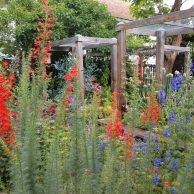
We’ve just made it much easier to purchase a Harlequin’s Gardens Gift Certificate online!
Our Gift Certificates can be purchased online year-round, and at any time of the day. You can select from 15 thematic designs, customize the amount that you would like to give, and add your own personal message.
You can then choose to send it via email immediately or on a future date, or to print it out and hand-deliver or mail it yourself. Following receipt, your recipient will be able to research their balance at any time. [Read More]
New Seeds for Fall, Winter, & Early Spring Planting!
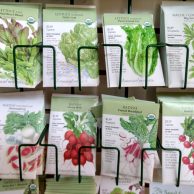
Sow Fall Crops and be ready for the 2022 growing season! We’re bringing in fresh seeds, packed for 2022, from our local Botanical Interests Seed Company, and should have them on display sometime this Thursday. Most of these seeds are certified organic.
Now is a great time to plant seeds for fall crops such as spinach, lettuce, mesclun, kale, swiss chard, arugula, mustard greens, and watermelon radish. Sow seeds this fall for mache, which will provide tasty salad greens in late winter, before the more conventional spring greens are ready. Fall sowing is also ideal for hardy, drought-tolerant annual flowers like borage, California poppies, cornflower, larkspur, love-in-a-mist, breadseed poppies, and Shirley poppies.[Read More]
Woody Plant Die-back and Pruning
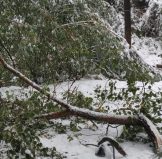 October 2020 went from record high temperatures in the 80s to record lows, 19 degrees by October 25. May 2021 also made some shocking temperature changes. These rapid and dramatic changes can cause woody plants to die back, lose branches or die completely.
October 2020 went from record high temperatures in the 80s to record lows, 19 degrees by October 25. May 2021 also made some shocking temperature changes. These rapid and dramatic changes can cause woody plants to die back, lose branches or die completely.
Mikl has been waiting and waiting before pruning this spring, because sometimes our woody plants can leaf out very late. Here is a way to tell when to prune: [Read More]
Our Best Selection of Plants for the 2021 Season is Here Now!
 Our best selection of plants for the 2021 season is here now! Our selection of plants for shade and part shade has never been better, including Hosta (many kinds!), Ferns (5 kinds!), Bergenia, Hellebore, Foxglove, Geranium (many), Coral Bells (many), Monkshood, Persicaria, Pulmonaria, Golden Wood Poppy and Clematis (lots!), and some new selections, like Solomon’s Seal (2 kinds)!
Our best selection of plants for the 2021 season is here now! Our selection of plants for shade and part shade has never been better, including Hosta (many kinds!), Ferns (5 kinds!), Bergenia, Hellebore, Foxglove, Geranium (many), Coral Bells (many), Monkshood, Persicaria, Pulmonaria, Golden Wood Poppy and Clematis (lots!), and some new selections, like Solomon’s Seal (2 kinds)!
The Ups & Downs of July
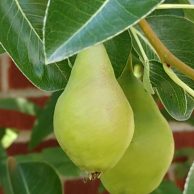 First, let’s count our blessings: the cool and wet spring has been great for plant growth (and of course, weeds galore!). The profusion of wildflowers this spring has been glorious, the foothills are still green going into July, and conditions for gardening are now quite pleasant. And we will have fruit on most of our fruit trees! Don’t forget to thin them to keep branches and trunks from breaking.
First, let’s count our blessings: the cool and wet spring has been great for plant growth (and of course, weeds galore!). The profusion of wildflowers this spring has been glorious, the foothills are still green going into July, and conditions for gardening are now quite pleasant. And we will have fruit on most of our fruit trees! Don’t forget to thin them to keep branches and trunks from breaking.
Colorado is well known for surprising weather events, but this year has been exceptional and, in some cases, record-breaking. [Read More]
MEMBERSHIP & WEEKLY E-NEWSLETTERS – 2025 Newsletter
HARLEQUIN’S GARDENS ANNUAL MEMBERSHIP
Join or renew now for benefits through December!
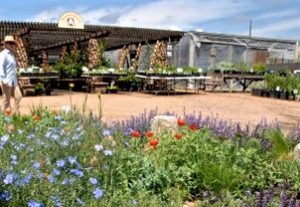
2025 Membership – Support and Celebrate 33 Years with us!
Choose the level of support that is right for you: the same benefits for all levels
CARNIVAL: $25 JAMBOREE: $50 GALA: $100 Fiesta: $250
In direct return for your support and generosity, Members will receive:
- 50% off their first Harlequin’s-hosted class (up to $11.50)
- 25% discount on books…All season (no discount if already discounted)
- Special Sales for Members only (announced in e-newsletter)
Your support helps us to:
- Continue our Staff Fund to help support and retain our valuable staff
- Invest in upgrading our Xeric Groundcovers Garden and other demo gardens
- Support customer education through our Regionally accurate Plant Descriptions and Plant Database
- Collect local seed to be able to provide plants genetically adapted to our region
- To be able to provide free plant and soil advice and help with pest questions
You can sign up to be a member on our website, at the nursery, or mail a check to Harlequin’s Gardens, 4795 North 26th St. Boulder, CO. 80301
THANK YOU TO ALL OUR MEMBERS!!!
E-NEWSLETTERS
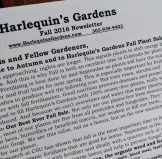 Please, subscribe to receive our weekly newsletters by email!
Please, subscribe to receive our weekly newsletters by email!
Our e-newsletters have timely garden advice and reminders, as well as news of stock arrivals, upcoming classes, special events and sales, etc. This is the best way we can give you detailed and up-to-date information at the time when it is relevant. Subscribe here, and please remember to add us to your Contact List so your email server doesn’t throw us in the trash!
FACEBOOK – Please LOVE and follow us on Facebook and @harlequinsgardens on Instagram!
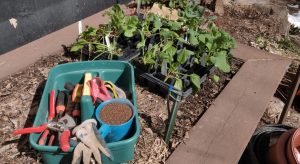
MEMBERSHIP & WEEKLY E-NEWSLETTERS – 2023 Newsletter
HARLEQUIN’S GARDENS ANNUAL MEMBERSHIP
Join or renew now for benefits through December!
 Choose the level of support that is right for you: the same benefits for all levels
Choose the level of support that is right for you: the same benefits for all levels
CARNIVAL: $22 FIESTA: $35
JAMBOREE: $50 GALA: $100
In direct return for your support and generosity, Members will receive:
- 50% off their first Harlequin’s-hosted class (up to $11)
- 25% discount on books…All season (no discount if already discounted)
- Special Sales for Members only (announced in e-newsletter)
- Special coupons for Members only
Your support helps us to:
1) Continue our Staff Fund to help support and retain our valuable staff
2) Invest in upgrading our Xeric Groundcovers Garden and other demo gardens
3) Support customer education through our Regionally accurate Plant Descriptions and Plant Database
4) Collect local seed to be able to provide plants genetically adapted to our region
5) Be able to provide free plant and soil advice and help with pest questions
You can sign up to be a member by clicking here, at the nursery, or mail a check to Harlequin’s Gardens, 4795 North 26th St. Boulder, CO. 80301..
THANK YOU TO ALL OUR MEMBERS!!!
E-NEWSLETTERS
 Please, subscribe to receive our weekly newsletters by email!
Please, subscribe to receive our weekly newsletters by email!
Our e-newsletters have timely garden advice and reminders, as well as news of stock arrivals, upcoming classes, special events and sales, etc. This is the best way we can give you detailed and up-to-date information at the time when it is relevant. Subscribe here, and please remember to add us to your Contact List so your email server doesn’t throw us in the trash!
FACEBOOK – Please LOVE and follow us on Facebook and @harlequinsgardens on Instagram!

Nearly 200 coutries have agreed to a legally binding “high seas treaty”. Twenty years in the making, this treaty finally evaluates commercial activities like deep sea mining, industrial fishing and shipping in order to protect marine life and biodiversity in international waters.
CNN 2023
Spring Weather Protection Tools
 We know Mother Nature teases Coloradans with delightful warm weather days in between snow and cold spells, and while they give us hope for the warm spring days ahead, this is a pattern that will continue through March, and into April.
We know Mother Nature teases Coloradans with delightful warm weather days in between snow and cold spells, and while they give us hope for the warm spring days ahead, this is a pattern that will continue through March, and into April.
If you’re eager to get your garden started here are tools that you can gather now, which will help your plants succeed during the turbulent early spring transition period. [Read More]
Bulb Tips from Eve
Species Crocus are the earliest Crocus to flower, at least two weeks before their Large Flowering siblings, and are the best for early spring lawn tapestries: hold off mowing the lawn until the foliage has died back. Drifts are also lovely in garden borders and rock gardens. Plant 4” deep and 3- 4” apart, about nine bulbs per square foot for a dense planting. (Crocus are also good for forcing indoors over the winter. Pot them up in mid-October and pre-cool them at a consistent, dark 38 to 45 degrees F for eight to ten weeks with moderate watering. Bring them into the house ~ they will bloom about four weeks later.)
Narcissus (Daffodil) Culture
Narcissus are easily grown in average, medium, well-drained soil in full sun to part shade. Best in organically rich, sandy to loams that drain well. Plant bulbs 4-6″ deep and 3-6” apart in fall. After the flowers have bloomed, the top portion of each flower stem may be removed, as practicable, to prevent seed formation, but foliage should not be cut back until it begins to yellow.
All daffodil flowers face the sunniest direction they can locate, so if planted along a wall or with shadow at their backs, they will always face outward. With daffodils, it is a good idea to ponder which way they are going to face before selecting their position, as a grouping that faces toward sunlight through a picket fence and away from the yard might seem to have been planted backwards, their heads bowed away from the garden’s viewer.
Best known for their wonderful scent, Jonquillas are floriferous, late blooming, and extremely durable, with slightly shorter, smaller blooms that look like miniature versions of many of the larger daffodil favorites. Typically, at least three flowers are borne on each stalk. Jonquilla Daffodils like hot, baking summer sun and naturalize well, creating beautiful sweeps of color.
Cold Snap Alert!
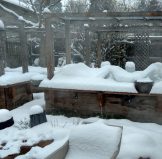 We were just getting comfy and confident in the progressing spring weather, when Mother Nature reminds us that She is in control!
We were just getting comfy and confident in the progressing spring weather, when Mother Nature reminds us that She is in control!
According to the NOAA extended forecast for Boulder, CO, there is a Hazardous Weather Outlook for northeast and north central Colorado later this week. Our weather is expected to shift beginning Thursday night into Friday when a cooler and wetter pattern moves in. Night temperatures Thursday are forecast to drop to about 40˚F, and day temperatures will hover in the low 50s. Friday and Saturday could bring even lower temperatures, with highs of only 45 and lows of 33, possibly accompanied by strong winds, rain, snow and/or H_ _L! It appears that this weather pattern could continue through Sunday / Monday. Temperatures in your garden will depend on your elevation and exposure, and could drop below freezing.
What this means for your plant care, especially tender vegetables, and annuals, is that it’s time to prepare to bundle them up later in the week before the cold snap arrives. Here’s how you can best do so. [Read More]
SEEDS – 2022 Newsletter
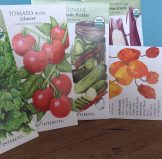 This year we continue to offer a wonderful selection of seeds from our local BOTANICAL INTERESTS for tried-and-true vegetables, herbs, flowers, and sprouts, microgreens and cover crops, and local BEAUTY BEYOND BELIEF (BBB) seeds for individual and mixed wildflowers. And from SEED SAVERS EXCHANGE, preserving and sharing heirloom varieties, we offer some of our favorite time-tested veggies and flowers.
This year we continue to offer a wonderful selection of seeds from our local BOTANICAL INTERESTS for tried-and-true vegetables, herbs, flowers, and sprouts, microgreens and cover crops, and local BEAUTY BEYOND BELIEF (BBB) seeds for individual and mixed wildflowers. And from SEED SAVERS EXCHANGE, preserving and sharing heirloom varieties, we offer some of our favorite time-tested veggies and flowers.
To be hopeful in bad times is not just foolishly romantic. It is based on the fact that human history is a history not only of cruelty but also of compassion, sacrifice, courage, kindness.
– Howard Zinn
Earth Day 2021 – Thursday, April 22
 We hope you will celebrate Earth Day, maybe all week. It is good to acknowledge that we have a planet and that it has been supportive of life and human life for a long time. Unfortunately, we humans have not treated Her well, Gaia, our Mother Earth. We were told the story that we humans are the masters of the earth and that all the creatures and resources are here for our use and glory. Not everybody believed that story. Chief Joseph told our ancestors: “The Earth does not belong to us; we belong to the Earth.” [Read More]
We hope you will celebrate Earth Day, maybe all week. It is good to acknowledge that we have a planet and that it has been supportive of life and human life for a long time. Unfortunately, we humans have not treated Her well, Gaia, our Mother Earth. We were told the story that we humans are the masters of the earth and that all the creatures and resources are here for our use and glory. Not everybody believed that story. Chief Joseph told our ancestors: “The Earth does not belong to us; we belong to the Earth.” [Read More]
Boulder County’s First Botanic Garden!
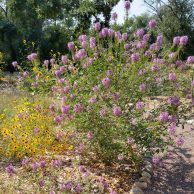 In mid-August, Mikl and Eve had the pleasure of visiting the beautiful, newly created and planted Rocky Mountain Botanic Gardens in central Lyons, CO. Envisioned and designed by herbalist, botanist, and educator Garima Fairfax (a beloved former Harlequin’s staffer!) and brought to fruition with a team of dedicated volunteers and grant money, the non-profit botanic garden is a delightful and educational display of native annuals, perennials, shrubs, vines, and trees. It is easily accessed along popular walking and cycling trails. [Read More]
In mid-August, Mikl and Eve had the pleasure of visiting the beautiful, newly created and planted Rocky Mountain Botanic Gardens in central Lyons, CO. Envisioned and designed by herbalist, botanist, and educator Garima Fairfax (a beloved former Harlequin’s staffer!) and brought to fruition with a team of dedicated volunteers and grant money, the non-profit botanic garden is a delightful and educational display of native annuals, perennials, shrubs, vines, and trees. It is easily accessed along popular walking and cycling trails. [Read More]
TREES – 2022 Newsletter
The TREES we sell are smaller than ball & burlap trees that are dug in the field, leaving at least 75% of their roots in the ground. Ours are grown in a container so they have a complete root system and begin growing immediately and are not stressed. Here is a sample of some of our selection.
RUSSIAN HAWTHORN
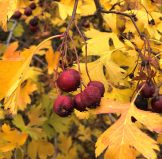 Very tough and xeric, grows 15’ high and wide, white flowers and red berries, loves Colorado conditions!
Very tough and xeric, grows 15’ high and wide, white flowers and red berries, loves Colorado conditions!
ROCKY MT. MAPLE
Native to our foothills, likes to grow in the protection of other trees, red fall color, 10’-15’.
GAMBEL OAK and WAVYLEAF OAK
Both natives that grow 10’-15’, with little water and poor soil, support birds.
HACKBERRY
Good shade tree to replace an ash, a fast-growing hardwood, the most drought tolerant shade tree.
WHITE MULBERRY
The hardiest mulberry, 25-30’ tall and wide, very xeric, white fruit is tasty and does not stain. Brings Western Tanagers, Orioles to your garden!
GOLDEN RAIN TREE
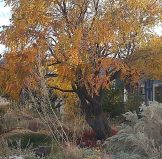 25′ xeric tree with golden flowers in July, orange lantern-like pods, orange fall color, seeds abundantly.
25′ xeric tree with golden flowers in July, orange lantern-like pods, orange fall color, seeds abundantly.
CHOKECHERRY
Native, suckering tree to 15′-25′ with white flowers, edible fruit; great for birds and butterflies.
SUCKER PUNCH CHOKECHERRY
Leaves start green then turn red all season, non-suckering, white flowers, berries.
SILVER BUFFALOBERRY (Shepherdia)
10′ native small tree with edible red fruit on female plants,, silver leaves, very xeric, few thorns.
MAYDAY TREE (Prunus padus)
20′-30′ with clusters of white flowers, then bird fruit, fast screen.
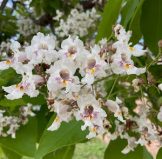 WESTERN CATALPA
WESTERN CATALPA
40′-50′ with vertical habit, fragrant orchid-like flowers, huge heart-shaped leaves, 12″ beans, xeric and special.
ARIZONA CYPRESS
20′-30′ hardy evergreen, blue foliage is fragrant, not scratchy, quite fast growing, bird favorite.
Plus, Honeylocust, Crab Apples, Silver Maple, Bur Oak, Thornless Cockspur Hawthorn, Aspen, Ptelea, Kentucky Coffee Tree, Ohio Buckeye, Autumn Brilliance Serviceberry, Hot Wings Maple, Alder, Native Birch, Bigtooth Maple, and More!
We have to suck carbon out of the atmosphere naturally — by planting trillions of trees…
– Senior Climate Scientist Brenda Ekwurzel
Winter Watering Alert!
The weather’s wonderful, but a bit DRY! All this sun and wind, and little rain or snow, is stressful to our plants, so don’t forget to give your plants some water. This is especially true for new plantings, evergreens, and roses and most any plant that was planted in September or October. These plants are especially vulnerable and are more likely to suffer or die from dehydration than from cold. [Read More]
SHRUBS & VINES – 2022 Newsletter
We have a large selection of natives and non-natives Shrubs AND Vines
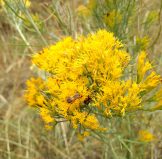 This includes Amorpha, Manzanitas, Mt. Mahoganies, Big Sage, Fringed Sage, Sand Sage, Lilacs, Butterfly Bushes, Pea Shrubs, Gambel Oak, Viburnums, Spireas, Potentillas, Sand Cherry, Rabbitbrush, Fernbush, Mountain Ninebark, Cliff Rose, Lewis Mockorange, Mikl’s Pick Mockorange, Boulder Raspberry, Boxwoods, Cotoneasters, Honeysuckles, New Mexican Privet, Flowering Quince, Ephedra, Euonymus, Sumacs, Currants, Yuccas, and many more!
This includes Amorpha, Manzanitas, Mt. Mahoganies, Big Sage, Fringed Sage, Sand Sage, Lilacs, Butterfly Bushes, Pea Shrubs, Gambel Oak, Viburnums, Spireas, Potentillas, Sand Cherry, Rabbitbrush, Fernbush, Mountain Ninebark, Cliff Rose, Lewis Mockorange, Mikl’s Pick Mockorange, Boulder Raspberry, Boxwoods, Cotoneasters, Honeysuckles, New Mexican Privet, Flowering Quince, Ephedra, Euonymus, Sumacs, Currants, Yuccas, and many more!
VINES
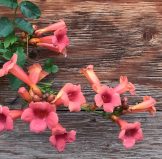
Honeysuckle, Trumpet Vine, Wisteria, Silver Lace, Clematis, Euonymus and MORE!
Unless someone like you cares a whole awful lot, nothing is going to get better. It’s not.
– The Lorax (Dr. Seuss)
Self-sowing Hardy Annuals
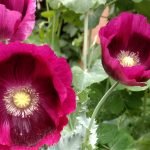
Papaver ‘Lauren’s Grape’
Some customers wonder why we are selling starts of self-sowing hardy annuals like Larkspur, Rocky Mt. Beeplant, California Poppy, Peony-flowered Poppy, Pheasant’s Eye, Sweet Alyssum, Nodding Dragonshead, Bee’s Friend, and Desert Bluebell. Shouldn’t they be grown from seed sown directly in the garden? The answer is Yes, they certainly can be, and if you find a source for the seeds and sow them at the optimal time, usually in the fall, you can get great results. But some gardeners report having little or no success with direct sowing: their timing is off, the seeds are watered in and then dry up and are no longer viable, critters eat the seeds, etc. [Read More]
PERENNIALS – 2022 Newsletter
Harlequin’s huge choice of pollinator-supporting Perennials. Including:
NATIVES
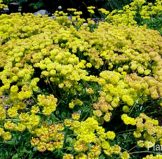
Eriogonum umbellatum var. aureum ‘Psdowns’ (Kannah Creek® buckwheat). Photo Credit: Plant Select
SULFUR FLOWER KANNAH CREEK
Mahogany fall color. Eriogonum allennii – 3′ wide, very xeric, yellow flowers, a winner. Eriogonum umbellatum – yellow blooms cover xeric native mat, feeds butterflies, bees.
ASCLEPIAS INCARNATA
1′-3′ Full Sun, Attracts butterflies, native and honeybees, hummingbirds.
ASCLEPIAS TUBEROSA
Butterfly Weed, orange flowers, 1’-2’ high, essential Monarch food and nectar.
NATIVE PUSSYTOES, ASTER, Arnica, Skyrocket Ipomopsis, Blazing Star, Navajo Tea, Prairie Sundrops (Calylophus serrulatus)
NATIVE BEE-BALM
–Monarda fistulosa: Showy purple blooms bring bees, hummers, butterflies; deer-resistant.
MANY PENSTEMONS INCLUDING P. VIRENS
2”x 8”, short spikes of blue flowers; shiny, dark evergreen leaves.
MANY COLUMBINES INCLUDING
Rocky Mt., Denver Gold, Western Red, Barneby’s
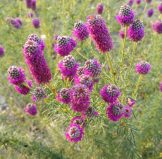
Dalea purpurea (Purple Prairie Clover)
PURPLE PRAIRIE CLOVER
Long lived xeric native loved by many bee species, bright purple-pink, nitrogen-fixing.
GAILLARDIA ARISTATE – BlanketFlower
LIATRIS PUNCTATA – Gayfeather
OENOTHERAS – Evening Primroses
CHOCOLATE FLOWER
12″ x 24″ wide, yellow daisies with chocolate fragrance, very xeric native.
SPHAERALCEA MUNROANA
Hardy, 18” vivid orange blooms all spring, bee-loved, low-water, silver leaves, rare.
ERYSIMUM WHEELERI/WHEELER’S WALLFLOWER
Tall, long-blooming biennial, vivid burnt-orange flowers, exclusive!
GEUM TRIFLORUM/PRAIRIE SMOKE
Colorado native, handsome foliage, reddish flowers, feathery seedheads, sun/part shade.
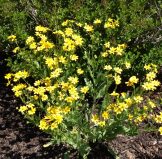
Engelmannia peristenia (Engelmann Daisy)
ENGELMANNIA PERISTENIA/ENGELMAN DAISY
Plant Select, neat golden daisies all summer, 18”h low water beauty
TOWNSENDIA HOOKERI & KIN
Native ‘Easter Daisies” grow dry, begin bloom super-early in neat little clumps.
ECHINACEA ANGUSTIFOLIA/NARROW-LEAF CONEFLOWER
Premier immune herb, large pink or white summer blooms.
PLUS, MANY GREAT NON-NATIVES INCLUDING:
MANY AGASTACHES
Blue Fortune, Coronado, Black Adder, A. rupestris.
SAGE
Culinary, Purple, Berggarten, Blue Hill, May Night, Caradonna, Furman’s Red, Mojave, S.azurea, S. argentea.
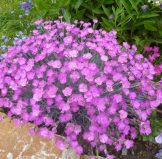
Dianthus gratianopolitanus ‘Firewitch’
DIANTHUS
Tuscan Honeymoon – grassy foliage, 2’-3’ stalks of pink flowers late summer D. gratianopolitanus – very tough groundcover. very fragrant pink flowers, durable. D. Blue Hills – the bluest foliage, fragrant flowers, 12” diam. D. Firewitch – fragrant; D. petraeus noeanus – Jasmine Dianthus, powerfully fragrant.
HARDY GERANIUMS
Biokovo, Splendens, St. Ola, Crystal Rose, Cambridge, Ballerina,G. macrorrhizum, G. sanguineum
ECHINACEA
purpurea, Magnus, White Swan, E. tennesseensis, E. pallida, E. paradoxa, Cherokee Sunset
ROSEMARY
Arp, Madeline Hill, Tuscan Blue, Prostrata.
HARLEQUIN’S SILVER GERMANDER, T. rotundifolium, T. chamaedrys
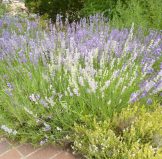 MANY LAVENDERS
MANY LAVENDERS
Royal Velvet, Grosso, Twickle Purple, Munstead, Hidcote, Thumbalina Leigh, Vera, Wee One.
ORNAMENTAL OREGANO
Kent’s Beauty, Amethyst Falls, etc, cascading groundcovers, long blooming, bee-loved.
PLUS
Scabiosa Fama, Sedum nevii, Corsican Violet, Limonium gmelinii, Lallemantia canescens, Firefly Coralbells, Fancy Heucheras, many Hostas, and many, many more!
TOUGH ANNUALS
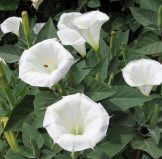
Datura meteloides
Snapdragons, Zinnia, Lauren’s Grape Poppy, Petunias, Datura, Pansies, California Poppy, Nicotiana, Salvias, Larkspurs, Peony-flowered Poppies, Swan River Daisy, Sweet Alyssum, Calendula, Kiwi Blue Honeywort, Cleome, Cuphia, Dahlia, Sacred Datura, Gomphrena, Marigolds, Nasturtiums, Baby Blue-Eyes, Love-in-a-Mist, Sun Rose, California Bluebells, Wax Begonia, Blackeyed Susan Vine, Annual Periwinkle, Canterbury Bells, and more!
Tips for Root Vegetable Success
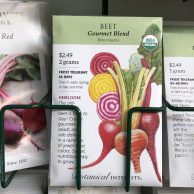
Some veggies seem to shy away from the limelight, flourishing underground to provide a surprising, beautiful, and nutritious surprise later in the season. Growing root vegetables is generally easy, and can be a fun way to engage children in gardening. In addition, mountain gardeners often find that root veggies thrive in their cooler conditions.
Once planted, root veggies do not like to be disturbed and therefore are best planted by seed. (We do sell Bull’s Blood Beets as a starts, but these are generally grown for their greens.) We have Botanical Interests, Masa, and Seed Savers Exchange seeds for many root veggies including: [Read More]
Mason bees are flying!
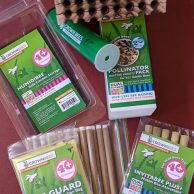
It’s official – Mason bees are flying! Make sure you have new, clean nesting materials for them and for the other bee species that follow throughout the summer. If you have overwintered cocoons, get them out now. You can use one of our release tubes (pictured left) that allow the bees to emerge but not to renest in the same old dirty straws.
Mason bees only fly from about mid-March to early June. If you don’t have plants blooming then, such as fruit trees or Mahonia, you won’t be able to support mason bees. Don’t worry though because there are many other cavity nesting species that are happy for a clean safe place to nest. [Read More]
Fruit for Colorado
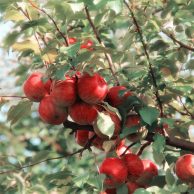 One of our specialties is fruiting plants that are adapted to Colorado conditions. All the apples we carry are resistant to fireblight and good tasting. And the cherries we sell are all proven successful in Colorado. Our grapes are the hardiest of any you will find, delicious fresh, in juice and a few are good for wine. And we have productive & good tasting currants, gooseberries, blackberries, strawberries, raspberries including: [Read More]
One of our specialties is fruiting plants that are adapted to Colorado conditions. All the apples we carry are resistant to fireblight and good tasting. And the cherries we sell are all proven successful in Colorado. Our grapes are the hardiest of any you will find, delicious fresh, in juice and a few are good for wine. And we have productive & good tasting currants, gooseberries, blackberries, strawberries, raspberries including: [Read More]
BEE BARN – 2021 Newsletter
 Our BEE BARN has a great selection of Bee Equipment for Honeybees and Native Bees!
Our BEE BARN has a great selection of Bee Equipment for Honeybees and Native Bees!
BUZZZZ ON BY TO CHECK IT OUT!
The happiest people don’t have the best of everything, they just make the best of everything.
Winston Porter
CACTI & SUCCULENTS – 2022 Newsletter
Harlequin’s Gardens has many winter-hardy cacti: chollas, ball cacti and prickly pears.
Succulents: Hardy Agave, Yucca, Hesperaloe, Ice Plant, Sedum and more.
At least 14 countries have now given legal rights to rivers and other ecosystems.
– The Sierra Club
Our 2021 Fall Sale is in Full Swing
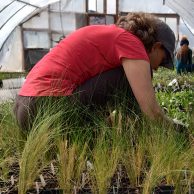 We’ve been in high-gear this season, propagating more plants and stocking more soil products than ever so we wouldn’t be vulnerable to supply-chain disruptions caused by the pandemic and extreme weather events. So now we have a wonderful selection, and most of them are on sale!
We’ve been in high-gear this season, propagating more plants and stocking more soil products than ever so we wouldn’t be vulnerable to supply-chain disruptions caused by the pandemic and extreme weather events. So now we have a wonderful selection, and most of them are on sale!
In our experience, fall is the most successful time establish most plants, especially when mycorrhizae are applied to the roots during planting (and we’re well stocked with soluble mycorrhizae, too!).
We have increased the discount on our 2021 seeds to 60% off! [Read More]
MEMBERSHIP & WEEKELY E-NEWSLETTERS – 2022 Newsletter
MEMBERSHIP IN HARLEQUIN’S GARDENS

Memberships help Harlequin’s to do those extras that are so valuable to the community but that are not profitable, like: 5 demonstration gardens of Natives, low-water groundcovers, the New Western Garden etc.; plus, plastic pot recycling; plant and pest identification for customers; hand-outs on many subjects like pollinator plants, how to plant, what blooms in July etc.; local seed collecting and propagation, and more.
Please become a member to support what we do and receive special benefits too!
Here is our expanded current offer

Members will give us $22 or more for a one-year membership and in direct return will receive these benefits:
1) Half-price Harlequin’s Class of your choice.
2) 25% discount on books all year.
3) During the May Day Week get $10 off a $50 or more purchase of plants (except roses & fruit trees).
4) During May Day Week, take 10% off roses (except quarts), then
5) In August begin the fall sale a week early with 20% off most everything.
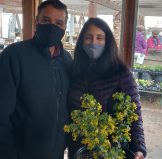
You can become a member anytime you are at the nursery or mail a check for $22 or more to Harlequin’s Gardens (4795 North 26th St. Boulder, CO. 80301) or CLICK HERE.
With our new system, memberships are good for one year from the purchase date.
THANK YOU TO ALL OUR MEMBERS!!!
A significant amount of greenhouse gas emissions could be avoided from composting all organic waste…Taking your food scraps out of the garbage is about the same as purchasing an electric vehicle. It starts to add up. It’s not small potatoes.
– Monique Di Giorgio, Table to Farm
E-NEWSLETTERS
 Please, subscribe to receive our weekly newsletters by email!
Please, subscribe to receive our weekly newsletters by email!
You can get both hardcopy and emails by letting us know at 303-939-9403, or you can pick up a hard copy when you visit the nursery. Our e-newsletters have timely garden advice and reminders, as well as news of stock arrivals, upcoming classes, special events and sales, etc. This is the best way we can give you detailed and up-to-date information at the time when it is relevant. Subscribe here, and please remember to add us to your Contact List so your email server doesn’t throw us in the trash!
Please LOVE and follow us on Facebook!

The rate of hunger in Colorado has tripled since the start of the pandemic. Denver Urban Gardens is now the largest urban garden network in the nation supporting more than 180 community gardens and 17,000 gardeners on 31-acres of land, donating 60,000 lb. of organic veggies, distributing seeds and seedlings, and teaching empowering classes. Support them!
Get your Plants Moving!
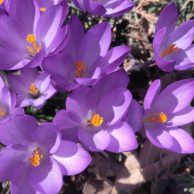 Do you have plants that you like, but that need to be moved to a different location in your garden? Or has your clump of Shasta Daisy, Daylily, Hardy Geranium, etc. become too wide and now needs to be divided? By dividing your mature perennials, you get free plants to expand your garden, to give to neighbors, or pot up and donate to a fund-raising event like KGNU FM Community Radio’s Spring Plant Sale! The next couple of weeks bring the very best opportunity to accomplish these moves without stressing your plants too much. Search the web for instructions from a trusted source for dividing the specific plant you’re working with.
Do you have plants that you like, but that need to be moved to a different location in your garden? Or has your clump of Shasta Daisy, Daylily, Hardy Geranium, etc. become too wide and now needs to be divided? By dividing your mature perennials, you get free plants to expand your garden, to give to neighbors, or pot up and donate to a fund-raising event like KGNU FM Community Radio’s Spring Plant Sale! The next couple of weeks bring the very best opportunity to accomplish these moves without stressing your plants too much. Search the web for instructions from a trusted source for dividing the specific plant you’re working with.
Solar Caps – A Cozy Sweater for your Veggies!
 Unexpected cold snaps can still occur even after the last average frost date (around May 9). Just as we need to add another layer of clothing during cold snaps, our warm-season veggie starts also need additional insulation as the spring season and soil slowly begin to warm up. This layering can come in several forms, each with their own advantages and applications: low-tech overturned plant pots, row cover anchored over wire or plastic pipe frame (as illustrated in the “Hardening-Off” portion of this article), and Solar Caps.
Unexpected cold snaps can still occur even after the last average frost date (around May 9). Just as we need to add another layer of clothing during cold snaps, our warm-season veggie starts also need additional insulation as the spring season and soil slowly begin to warm up. This layering can come in several forms, each with their own advantages and applications: low-tech overturned plant pots, row cover anchored over wire or plastic pipe frame (as illustrated in the “Hardening-Off” portion of this article), and Solar Caps.
Because of their versatility and re-usability, Solar Caps have been one of our favorite garden tools for over a decade. [Read More]
MEMBERSHIP & WEEKELY E-NEWSLETTERS – 2021 Newsletter
MEMBERSHIP IN HARLEQUIN’S GARDENS
If you paid for a membership in 2020, you are already a member for 2021!
 Memberships help Harlequin’s to do those extras that are so valuable to the community but that are not profitable, like: 5 demonstration gardens of Natives, low-water groundcovers, the New Western Garden etc; plus, plastic pot recycling; plant and pest identification for customers; hand-outs on many subjects like pollinator plants, how to plant, what blooms in July etc; local seed collecting and propagation, and more. Please become a member to support what we do and receive special benefits too!
Memberships help Harlequin’s to do those extras that are so valuable to the community but that are not profitable, like: 5 demonstration gardens of Natives, low-water groundcovers, the New Western Garden etc; plus, plastic pot recycling; plant and pest identification for customers; hand-outs on many subjects like pollinator plants, how to plant, what blooms in July etc; local seed collecting and propagation, and more. Please become a member to support what we do and receive special benefits too!
Here is our expanded current offer
Members will give us $20 for a one-year membership and in direct return will receive these benefits:
 1) Half-price Harlequin’s Class of your choice.
1) Half-price Harlequin’s Class of your choice.
2) 25% discount on books all year.
3) During the May Day Week get $10 off a $50 or more purchase of plants (except roses & fruit trees).
4) During May Day Week, take 10% off roses (except quarts), then
5) In August begin the fall sale a week early with 20% off most everything.
You can become a member anytime you are at the nursery or mail a check for $20 to Harlequin’s Gardens (4795 North 26th St. Boulder, CO. 80301) or click here. We will put you in our Membership file, and a membership is valid until the end of the 2021calendar year.
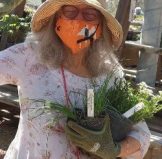 THANK YOU TO ALL OUR MEMBERS!!!
THANK YOU TO ALL OUR MEMBERS!!!
Every time you spend money, you’re casting a vote for the kind of world you want.
Anna Lappe
E-NEWSLETTERS
 Please, subscribe to receive our weekly newsletters by email!
Please, subscribe to receive our weekly newsletters by email!
You can get both hardcopy and emails by letting us know at 303-939-9403, or you can pick up a hard copy when you visit the nursery. Our e-newsletters have timely garden advice and reminders, as well as news of stock arrivals, upcoming classes, special events and sales, etc. This is the best way we can give you detailed and up-to-date information at the time when it is relevant. Subscribe here, and please remember to add us to your Contact List so your email server doesn’t throw us in the trash!
FACEBOOK – Please LOVE and follow us on Facebook!

It’s not drought that causes bare ground; it’s bare ground that causes drought.
Alan Savory
THE HARLEQUIN EFFECT – 2021 Newsletter
THE HARLEQUIN EFFECT
 Little Harlequin’s Gardens has always taken on the planet’s problems at the human level and at the earth level. We are growing plants without poisons so the bees, birds and bacteria will not be poisoned. We source many of our plants and products locally to support our local economy, local composting and to reduce carbon emissions from shipping. Our greenhouses and our production methods use almost no fossil fuels and very little electricity. We reuse clean plastic jugs for our compost tea and our Harlequin-bagged soils come in plastic bags that can be returned for reuse. We provide the organic plants, the products, and the education for people to grow their own fresh organic food, herbs and gardens. And more!
Little Harlequin’s Gardens has always taken on the planet’s problems at the human level and at the earth level. We are growing plants without poisons so the bees, birds and bacteria will not be poisoned. We source many of our plants and products locally to support our local economy, local composting and to reduce carbon emissions from shipping. Our greenhouses and our production methods use almost no fossil fuels and very little electricity. We reuse clean plastic jugs for our compost tea and our Harlequin-bagged soils come in plastic bags that can be returned for reuse. We provide the organic plants, the products, and the education for people to grow their own fresh organic food, herbs and gardens. And more!
In the big scheme of things, what we do is small. But the Harlequin Effect is that because these things are multiplied by 9000 of you, the effect on our ecology and health is significant. This is the synergy of our vision and commitment with your vision and action.
Climate change may seem to be taking place up there in the sky, but many of its causes are right down here on the earth in human hands.
The Karmapa, Ogyen Trinley Dorje
Q: Can I plant now?
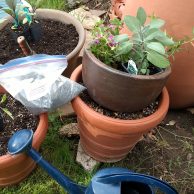 Q: Can I plant now?
Q: Can I plant now?
A: It depends!
Yay! For those of us gardening at about a mile high, the threat of frost is nearly gone! If you’re planting hardy perennials, shrubs, vines, grasses or trees, you’re good to go now (as long as your soil isn’t too wet to work), and we have a remarkable selection! Our stock of seeds and starts for tomatoes, peppers, eggplants, cucumbers, summer & winter squash, melons, pumpkins, and watermelons are excellent. We also have plenty of seeds for beans – bush, pole, runner, and dry. A hint about bean seeds: white-seeded beans are more tolerant of cool soils, so they can be planted sooner. [Read More]
COOL SEASON VEGGIES & HERBS – 2022 Newsletter
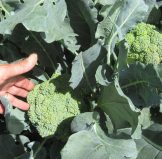 COOL SEASON VEGGIES
COOL SEASON VEGGIES
We have a Fantastic Selection, too many to list!
ARUGULA
Wild Arugula, Astro, (spring), Ice-Bred (fall)
BROCCOLI
Fiesta, Nutribud, Leaf Broccoli, Spigariello di Liscia Leaf Broccoli, Aspabroc
OTHER VEGGIE STARTS – 2022 Newsletter
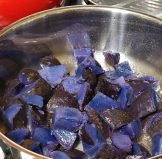
Purple Majesty when cooked
POTATOES
Yellow Finn, Purple Majesty, Harvest Moon, and Norland Dark Red.
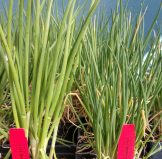
Heirloom Tohono O’odham Multiplier Onion plants
ONIONS
Patterson Red, Redwing, Walla Walla, Ailsa Craig, Red Long of Tropea, Red Geneva, Gladstone, Borrettano, Dakota Tears, Bianco di Maggio.
ALSO, Leeks and Shallots.
ASPARAGUS
JERSEY KNIGHT (roots, 5 per bundle)
All male hybrid with big spears. Does not make seed, so doesn’t become weedy. Best selection for dense clay soils. Very productive and disease resistant. Hardy to Zone 2.
PURPLE PASSION (roots, 5 per bundle)
Beautiful deep burgundy-colored spears with high sugar content, delicious, tender, less fibrous, great in raw salads.
EGGPLANT OFFERINGS – 2022 Newsletter
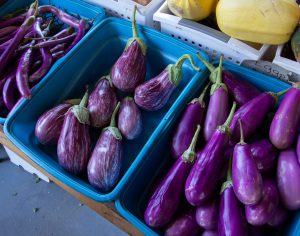 EGGPLANTS
EGGPLANTS
GALINE
72 days, F-1 hybrid
Early, dependable Italian-style eggplant, mild, creamy-fleshed fruits averaging 1 lb., with glossy black skin.
PEPPER OFFERINGS – 2025 Spring Newsletter
PEPPERS
A few of our NEW and “NEW AGAIN” PEPPERS: Offering 44 varieties!

Chimayo, courtesy Adaptive Seeds
CHIMAYO – 65 days, Open-pollinated, 4,000 – 6000 SHU, Capsicum anuum
A famous heirloom New Mexico chile. Medium hot, thin skinned and easy to dry 3-5” long fruit are probably the earliest Southwestern chile to ripen to red; makes some of the best tasting chile powder. Since it is not too hot, you can use it in large quantities and achieve flavor nirvana without running for the fire extinguisher; on the Slow Foods Ark of Taste
Welcome to Spring and to our Celebration of the 30th Anniversary of Harlequin’s Gardens – 2022 Newsletter
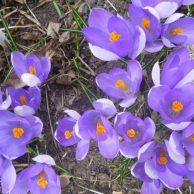 How did we possibly get this far? When we first opened in 1992, we had 2 acres a half mile down a dead-end gravel road, a dry well, a barn and a little greenhouse, and a few tables with plants. But we had a vision of a plant nursery that could serve Colorado’s Front Range and do it ecologically. We did have a country atmosphere and a great view. We had a lot of heart, but we only succeeded because an ever-increasing number of you found us and told your friends. [Read More]
How did we possibly get this far? When we first opened in 1992, we had 2 acres a half mile down a dead-end gravel road, a dry well, a barn and a little greenhouse, and a few tables with plants. But we had a vision of a plant nursery that could serve Colorado’s Front Range and do it ecologically. We did have a country atmosphere and a great view. We had a lot of heart, but we only succeeded because an ever-increasing number of you found us and told your friends. [Read More]
ONE HEALTH – 2021 Newsletter
 Can we have human health if our domesticated animals, wildlife, plants, and all nature are unhealthy, polluted, poisoned, weak and struggling? The answer seems to be NO. Climate Change “…coupled with a species-extinction crisis, habitat and soil degradation, pollution, extensive destruction of forests and coral reefs…” are all leading to our current health crisis.
Can we have human health if our domesticated animals, wildlife, plants, and all nature are unhealthy, polluted, poisoned, weak and struggling? The answer seems to be NO. Climate Change “…coupled with a species-extinction crisis, habitat and soil degradation, pollution, extensive destruction of forests and coral reefs…” are all leading to our current health crisis.
These views emerged in a conference in October 2019, attended by 200 experts, which generated a call to action called The Berlin Principles. These 10 principles say basically that if we are to prevent future and worse pandemics, we must recognize and support the essential health links between humans, all other beings including microbes and our entire planet. We must support biodiversity which is critical to the infrastructure of life, health, and well-being on our planet. And this understanding must develop into strong institutions based on robust science and into policy and action. We must recognize that our decisions about our use of land, air, sea, and fresh water directly impact the health of humans, animals and ecosystems. When ecosystems are altered, becoming less resilient, we become vulnerable to more diseases.
Therefore, we must invest in a healthy natural infrastructure and fund the surveillance and protection of healthy ecosystems. (See One World One Health and Science Direct.)
COVID-19 has shown us the huge cost of inaction caused by the disconnect between science, economics, and politics. Taking the perspective of One Health gives us humans both the power and the responsibility to take on this huge problem at the root level.
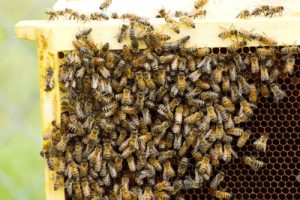 We might ask ourselves: Why does the USA, the richest country in the world, lead the world in coronavirus cases and deaths? With only 4% of the world’s population, we have 25% of all cases and 20% of all deaths. This cannot be blamed on mismanagement alone. Our government has for years favored business profits over public health and environmental health. For example, the EPA website warns that glyphosate (active ingredient in Roundup) at 700 parts per billion can cause “problems with kidneys or reproductive difficulties” and yet 700 ppb is the permitted level in U.S. tap water. Only .1 ppb is allowed in European Union tap water. Roundup also causes many problems with fungi, bacteria (like in our guts), kills insects, birds and in general undermines the health of our planet. It shows up in baby food and beer. This is one example of a poison in our ecosystem that is leading to the poor health in our nation and in our world.
We might ask ourselves: Why does the USA, the richest country in the world, lead the world in coronavirus cases and deaths? With only 4% of the world’s population, we have 25% of all cases and 20% of all deaths. This cannot be blamed on mismanagement alone. Our government has for years favored business profits over public health and environmental health. For example, the EPA website warns that glyphosate (active ingredient in Roundup) at 700 parts per billion can cause “problems with kidneys or reproductive difficulties” and yet 700 ppb is the permitted level in U.S. tap water. Only .1 ppb is allowed in European Union tap water. Roundup also causes many problems with fungi, bacteria (like in our guts), kills insects, birds and in general undermines the health of our planet. It shows up in baby food and beer. This is one example of a poison in our ecosystem that is leading to the poor health in our nation and in our world.
Bayer says it will pay more than $10 billion to settle thousands of lawsuits from people alleging that their cancers were cause by Roundup, the company’s glyphosate-based herbicide.
The Sierra Club
Snow and Soil!
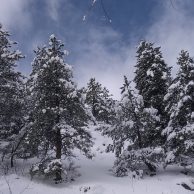
Wow! That was an impressive snowstorm, even if it did arrive several days later than predicted. We know how hard many of us have had to work to clear paths through it. And we hope everyone stayed safe, warm, healthy, and well-fed throughout. Colorado has been experiencing a long-term regional drought, so this addition to our mountain snowpack couldn’t be more welcome. Just think what a difference all this snow can make for Colorado’s farmers, many of whom have seen their ditch water allotments disappear in early July for the past several years.
Ready, Set, Plant!
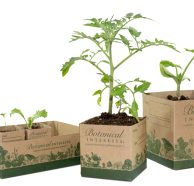 Even though we are about to receive our biggest snowstorm of this winter thus far, you can still make great progress on your garden by starting seeds indoors or even outside if your garden is prepared and you’re quick and can sow them tomorrow morning! You can also plant our hardy perennials, vines, shrubs and trees that have overwintered outdoors ahead of the storm. And our Onion plants – they’re very cold-hardy, and the earlier they’re planted, the larger their bulbs at harvest time! And, if you can plant in a cold-frame, or under a low tunnel of sheet plastic or Row Cover Fabric, you can plant our spring vegetable starts! Heading varieties like Broccoli, cabbage and cauliflower will give you [Read More]
Even though we are about to receive our biggest snowstorm of this winter thus far, you can still make great progress on your garden by starting seeds indoors or even outside if your garden is prepared and you’re quick and can sow them tomorrow morning! You can also plant our hardy perennials, vines, shrubs and trees that have overwintered outdoors ahead of the storm. And our Onion plants – they’re very cold-hardy, and the earlier they’re planted, the larger their bulbs at harvest time! And, if you can plant in a cold-frame, or under a low tunnel of sheet plastic or Row Cover Fabric, you can plant our spring vegetable starts! Heading varieties like Broccoli, cabbage and cauliflower will give you [Read More]
Clematis Pruning Groups
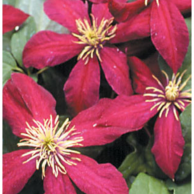
Despite the access we have right now to our snow-free gardens, in general it’s not time to begin garden clean up. Undoubtedly (hopefully!) we will receive more snowfall in February and March and it is beneficial to keep leaves on the ground and last-year’s stalks on our perennials because this cover provides habitat for overwintering beneficial insects and it helps to keep the plant roots and crowns warmer.
In late February and early March it will be time to cut back certain Clematis vines, depending on their category. Here is an in-depth guide to the three Clematis Pruning Groups. [Read More]
Feeding our Soil while Carbon Farming

Photo Credit: Aaron Favila – AP, and The Daily Camera.
Harlequin’s Gardens has become a member of the recently formed Coalition for Local Compost Climate Action. This is because Boulder County is getting ready to build a local composting facility to turn our organic wastes into fertility and climate action, which is very exciting!
For years we have been talking about the need for a local public composting facility. And now, driven by the pressure of Climate Change, it is even more obvious. We need to apply Nature’s waste recycling system, using microbes to remove valuable organic matter from the waste stream and turn it into healthy soil.[Read More]
Returning and New Seed Brands!
Seeds are selling, and sometimes selling out, at an unprecedented rate since Covid 19 forced so many people to stay at home, and thus inspired millions to try gardening for the first time. But we’re on it! Our racks will include loads of both tried-and-true favorites and exciting new varieties.
We will again be offering an excellent selection from our local seed houses, Beauty Beyond Belief (BBB) and Botanical Interests.
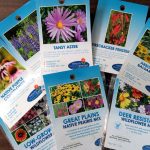 BBB’s specialties include individual wildflowers (many locally native!), wildflower seed mixes, and pollinator-supporting mixes specific to honeybees, butterflies or hummingbirds. Many of their offerings are hard to find elsewhere.
BBB’s specialties include individual wildflowers (many locally native!), wildflower seed mixes, and pollinator-supporting mixes specific to honeybees, butterflies or hummingbirds. Many of their offerings are hard to find elsewhere.
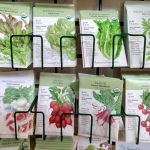 Botanical Interests goes to great lengths to provide all the information you need, and more (like an illustration of what the seedling looks like when it emerges), on both the outside and the inside of the packet, plus stunning, botanically accurate illustrations by highly skilled local artists adorning the front of each packet! We have carefully selected varieties from their catalog that will thrive in Colorado’s short season, early heat, cool nights, etc.
Botanical Interests goes to great lengths to provide all the information you need, and more (like an illustration of what the seedling looks like when it emerges), on both the outside and the inside of the packet, plus stunning, botanically accurate illustrations by highly skilled local artists adorning the front of each packet! We have carefully selected varieties from their catalog that will thrive in Colorado’s short season, early heat, cool nights, etc.
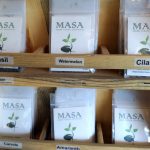 AND – NEW THIS YEAR! from MASA Seed Foundation, a wonderful line of locally-adapted seeds from master seedsman Rich Pecoraro and colleagues! Their seeds have been trialed, selected and reselected over the years to succeed in Front Range Colorado growing conditions. In our experience, these seeds have high germination rates and great seedling vigor, and develop into healthy plants, often with superior drought, heat and cold tolerance and disease resistance.
AND – NEW THIS YEAR! from MASA Seed Foundation, a wonderful line of locally-adapted seeds from master seedsman Rich Pecoraro and colleagues! Their seeds have been trialed, selected and reselected over the years to succeed in Front Range Colorado growing conditions. In our experience, these seeds have high germination rates and great seedling vigor, and develop into healthy plants, often with superior drought, heat and cold tolerance and disease resistance.
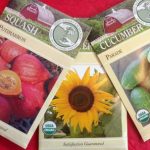
We will also offer a rack of Seed Savers Exchange selections. SSE’s mission is preserving genetic diversity by maintaining a vast seed library of heirloom varieties, many of which are found nowhere else. SSE packets generally offer a generous quantity of seed.
Winter Solstice 2020

This year the Winter Solstice will fall on Monday, Dec. 21st
This astronomical event is the time when the Earth’s north pole is tilted farthest from the sun, so that here in the northern hemisphere, night is the longest and daylight is the shortest. This day has long been celebrated because it signals the reversal of the trend, with days lengthening until Summer Solstice. So even though there is a lot of winter left, there will be more day light. It is the promise of rebirth, of Spring to come.
Peoples through different times and cultures have seen this event as a moment of rebirth and hope. [Read More]
Solstice Cheer from the Garden
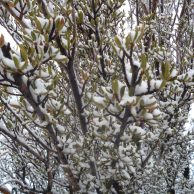 Attractive Evergreens for Colorado Gardens
Attractive Evergreens for Colorado Gardens
At the time of the Winter Solstice, we can be grateful for the evergreens in our Colorado gardens. Not every region of the temperate northern hemisphere can grow so many different beautiful plants with year-round presence.
There are so many evergreen (and eversilver, everblue, red and purple) hardy perennials, groundcovers, shrubs, herbs, and trees (and not just conifers!) we can grow here. They go above and beyond in their service as ornamental plants in all four seasons. [Read More]
Greetings to our Friends and Fellow Gardeners!
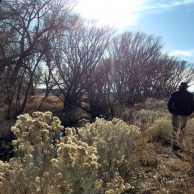
If, for the moment, we put aside the political anxieties and the shocking impacts of the COVID-19 pandemic on all almost all aspects of life as we knew it, we can turn our attention to the spiritual and emotional healing embodied in the holiday season. Winter Solstice, Chanukah, Kwanzaa, Eid and Christmas are all joyful celebrations of possibility, hope, love. Environmentally responsible gardening is so also about love, possibility and hope.
A gift certificate for Harlequin’s Gardens will be appreciated by any gardener, new or seasoned, [Read More]

